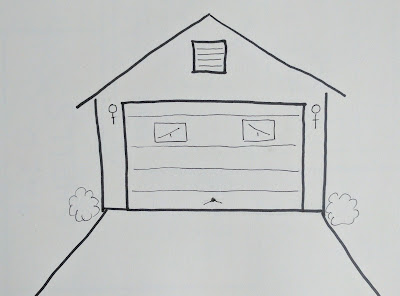The basic gist of the article is that, as both self-driving cars and electrical power systems grow, coupled with the instant-ordering supplied by smart phones, it will change how people choose to get their transportation. Instead of owning, we will rent on an as-needed basis. The author goes on to predict that, at the inflection point of long battery life and reliable autonomy, this behavior change will happen very quickly. "A matter of months" quickly.
A Matter of Money
I do agree that this will happen quickly, but I'm a bit skeptical that it will happen in so short a time frame. Instead, I expect it to take almost exactly three years. Why so specifically? Because that is the length of the common new vehicle lease. It will happen as these leases expire and the new owners start to noodle through their costs.
Here is the math. The cost of an average new car is $25,499 as of 2016. Historically, this average price has been mostly flat when adjusted for inflation, going up only $2000 over 40 years (see the same article linked for the price). On a three year lease, that is approximately $350 a month (3% APR, 0 down). An Uber X (their cheapest ride), from San Leandro to downtown San Francisco costs roughly $35. That means that for the same money you pay to lease a car, you can use Uber to commute 10 times. One way. Today that does not make sense. Today.
If there is no driver and gas is replaced by electricity, the costs for Uber will go down, while the costs for the car will stay the same (again, adjusted for inflation). This change will happen three years AFTER the price for renting an Uber (or whomever is still standing when this happens) is less than the monthly lease amount. That's when everyone has turned their cars back in and are no longer obligated to pay a lease.
A Matter of Disruption
The other part of that article that feels wrong to me is the amount of disruption. The author cites less traffic, less pollution, fewer traffic accidents and therefore a reduction in the cost of medical services as doctors become desperate for patients. That's all weak tea.
The disruption caused by this shift in consumer transportation will be much, much more severe. Good by filling stations. Good by neighborhood mechanic. Drive-through fast food will probably survive, but only as a load point for these autonomous cars to pick up food and then deliver it. McDonald's will have a fleet of Happy Meal shaped vehicles delivering Big Macs. Or drones. Probably drones.
And that's the commercial space. What about our homes? If you don't have a car, do you need a garage? Or a driveway? I predict that there will be a surge in teen bands pumping out horrible YouTube videos in what used to be garages when people stop owning cars.
All of that space around businesses that is currently taken up by parking lots will no longer be needed. What will replace it? Gardens? Small parks? More businesses (bet on this one)?
A Matter of Consequences
It took the smartphone roughly seven years to become ubiquitous (iPhone launch in June, 2009 to 70% ownership of smartphones by May, 2016) and look how much that has changed our first world. Changing the car, the thing around which our physical world has been designed, will change things even more. And in ways none of us can understand today.

No comments:
Post a Comment